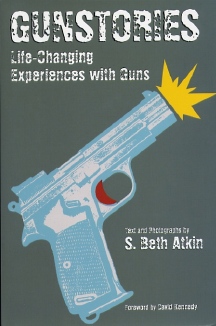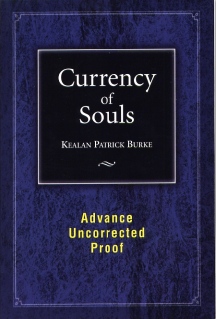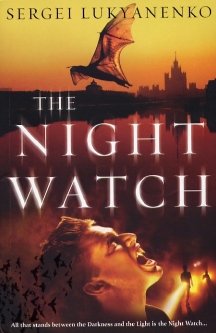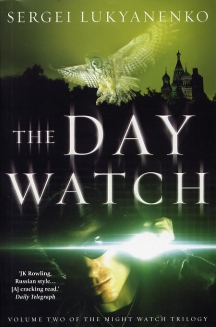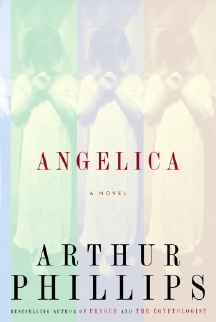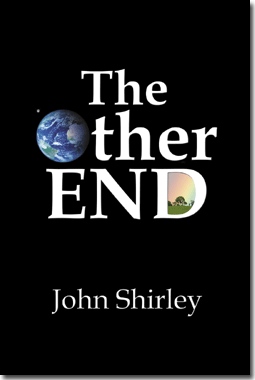|
|
|
This Just In...News from the Agony Column
|
12-29-06: S. Beth Atkin Tells 'Gunstories' |
|||
'Life-Changing
Experiences With Guns'
S. Beth Atkin answers that question in 'Gunstories: Life-Changing Experiences With Guns' (Kathryn Tegan Books / HarperCollins; August 2006 ; $16.99). It's a pretty simple concept with some powerful results that make for compelling reading and outstanding research, should one wish to write about guns. Tegan's book is about and to a certain extent for young adults, but the truth doesn't just hurt; it helps take this book into a realm of universal applicability. 'Gunstories' offers eighteen first-person essays by young adults who have had actual experiences with actual guns. Each story includes lots of black-and-white photographs by the author. They’re short, easily read, and totally compelling. Atkin covers all sorts of experiences, not just those of kids who shot someone or were shot themselves. She's not trying to be fair and balanced so much as to show a spectrum of experiences. It's a varied and interesting picture. For those of us who read (or write) crime fiction, it seems like a no-brainer purchase, a gallery of primary source research that is remarkably well-presented. Atkin does not appear to have an agenda here. You'll find 'A Gun Took Away My Mom' by Aushyla Brown followed by 'Pro-Gun Mom' by Maggie and Rosie Heil. In general, you'll find stories of kids who take to guns through their parents' interest or as a sport followed by stories of kids who either shot or had friends shot by guns. There are police reports and newspaper articles interspersed amidst the stories. Though the book is clearly aimed at young adults, it’s clearly useful for anyone wanting to read about real-life experiences with guns. The photos are a very welcome addition. Seeing the faces of these kids brings home their stories, makes them a lot less abstract. Salinas, California, a city near where I live that seems to have a story just about every night on the eleven o'clock news about gang violence, gets an entry. It's not scary. Atkin's not trying to horrify you. But that kind of clarity is at the very least quite bracing. Supported by a website, 'Gunstories' is a fantastic resource for a variety of readers as wide as the subjects of the book. This is raw, primary source material that is both powerful and bland; bland in the sense that Atkin does not pump up the pathos or slant her arguments to build some ultimate point about guns. It is a series of snapshots. You have put the gun on the wall. What will happen next? |
|
12-28-06: Kealan Patrick Burke Trades In the 'Currency of Souls' |
|||
Horrors
Never Cease
Horror and science fiction writers love their bar stories. Typically though, they are just that: stories. And therein lies a tale, or in this case, a novel. Kealan Patrick Burke was that lucky guy who edited the most recent Night Visions anthology for Subterranean Press, and 'Taverns of the Dead' for Cemetery Dance. He'll be back next year with 'Currency of Souls' (Subterranean Press ; February 2007 ; $40), his own very cool take on the old pub of perdition trope. What Burke brings to the table is something rather new, at least in my limited experience, because where more writers use the hostelry of horror shtick to spin out a series of jovial tales, Burke offers readers something far more satisfying, a main course instead of aperitifs, a full meal instead of appetizers: a novel instead of a collection of short stories. Eddie's Tavern is the name (making this, I guess a tavern of tragedy tale) of the Drinking Establishment in question. Tom tells the tale; he's the Sheriff round about here, and a loquacious fellow whose words go down easy as a fine whiskey. Once you get that far, the rest is easy. Burke's got the voice of his first person narrator nailed so thoroughly that one begins to wonder if he's got some sort of narrative nail gun hidden behind his back. Don’t matter, though, this pup reads real easy even though what goes down is in no way easy. Gracie, the barmaid by virtue of her father's curse is pale. Flo is hot and vivacious, but she may have offed her hubby. Maybe not the right gal to chat up. Wintry McCabe is a six-foot mute, who, "looks like a man with secrets, none of them good." If that last phrase piques your sensibilities then prepare for an all-night bender. Burke writes one memorable sentence after another, ratchets the action up at an alarming pace and by the time the going gets weird, you know that Burke is a pro. What's nice is that Burke has duplicated the typical texture of the barroom of the bizarre collections but given his a white-knuckle tight through-line. You get that collection of odd personalities, each with a great backstory. But you get those backstories in the context of a really, really eventful night at the ol' Tavern. Lives will end, at least for a short while. Undeaths will begin. Murders will committed and if not solved, perhaps they'll get resolved. Lotsa weird shit is going down. Beyond that page-turning though-line, Burke's other accomplishment here is his excellently deployed sense of humor. Stories set in inns of ill-fortune tend to be a bit silly, and while silly is all good and fine, Burke manages to keep the laughs coming but never gets silly. Oh, he gets savage, all right and certainly surreal. But goofy is definitely off the table in 'Currency of Souls'. You'll laugh, all right. Burke's clever prose ensures that. But this is nervous laughter. Something really funny might happen, but characters we sort of like, who seem like folks we might be unfortunate enough to know may come to a bad end. We'll see some things in this novel that we're not likely to see at out local watering hole of wonder. At Eddie's Tavern, it's the horrors, not the wonders that never cease. |
|
12-27-06: Sergei Lukyanenko Transfers from 'The Night Watch' to 'The Day Watch' |
||||||
Catching
Up On Russian Literature
That reading world got a little bit bigger, well no, a LOT bigger with the inevitable arrival of 'The Night Watch' (William Heinemann / Random House UK ; July 6, 2006 ; £10.99) and the forthcoming advent of 'The Day Watch' (William Heinemann / Random House UK ; January 7, 2007 ; £10.99) by Sergei Lukyanenko. (Yes, they're available in US editions as well, from yikes, Miramax books.) Bigger because these are honkin' big Russian-style novels. Inevitable because the movie version of the former title has already come and gone here in the US, with the usual attendant hyperbole and foofaraw. I actually saw 'The Night Watch' in a theater and enjoyed it to the extent one can enjoy a one-hour-something version of a 489-page novel. One might read every tenth page to get the effect of the movie, which in itself suggests why books are to me at least, infinitely (or at least ten times) preferable to movies. But let's sweep aside the popcorn and peek under the covers to see just who wants to dive into some Russian Litrachur. In the first place, one might be well advised not to be too hasty with the popcorn. 'The Night Watch' and 'The Day Watch' are excitingly conceived and imaginative, but they're not Dostoyevsky, or even Lem for that matter. Still, the setup is pretty sweet. You've got your humans. That's us. But you've also got Others. They look like us, but they're shape shifters, witches, vampires, wizards, creatures of power with the ability to step into the Twilight, a sort of parallel world where more things are possible than are dreamt of in your philosophy. When they come of age, they must make a decision to ally themselves with the forces of Light or the forces of, you guessed it – Darkness! Each version feeds off the vibes, good or bad of ordinary humans to power their, er superpowers. The members of the Night Watch are those Light Others charged with preventing the Dark Others from breaking the rules; the members of the Day Watch are the Dark Others charged with preventing the Light Others from pulling a fast one. Supernatural cops good and bad, keeping tabs on one another in an uneasy truce. The two sides have been at war for like, a thousand years, but that truce has kept them at bay. A truce mind you, not peace. Which means dat ole poxy lips, it's a gonna come down when you least expect it, or if not, at least be alluded to fairly early on in the first book of the trilogy. (Yes, it's a trilogy with 'The Dusk Watch' translation due shortly before the End of the World As We Know It.) So, you've got this Great One, he who shall bat 1000– sorry. The Great One will arrive and sort things out, presumably by choosing one side or the other then erasing the losers. Helluva presumption if you ask me, but the Others seem pretty keen on it but each side is positively batty about getting this Great One signed up.
'The Night Watch' is the set-up novel, and it does a commanding job at creating post-Soviet Moscow as an urban hell populated by denizens of hell. Readers expecting a purely page-turning thriller that moves with the velocity of the movie will be best served by reading one of every five pages. The rest us will immerse ourselves in the details of Lukyanenko's creation. While Andrew Bromfield's translation is fine enough, he's no Michael Kandel. I suppose seeing a gear or two clunk isn’t going to stop anyone, especially when you've got the exotic yet accessible backdrop to explore. And Lukyanenko is no Dostoyesky. (Nobody is, perhaps not even Fyodor himself). You’re more likely to find echoes of George Lucas than George Elliot in The Night Watch Trilogy. Go with the flow and you'll find some powerfully grim scenes as well as a few "Use the force, Lukyanenko" moments. The author is fully able to exploit the power of Russian mythology – both urban and classic – to craft visions of surreal strangeness. 'The Day Watch' wastes no time setting anything up, but plunges readers into a sort of an oddball novel of romance and terror. Alice, a Dark Other, gets drained in an encounter with the Night Watch. Sent off to recuperate, she takes shine to one of her healers, until a secret is revealed. Then it's hell hath no fury, damn the dueling wizards and full speed ahead. 'The Night Watch' and 'The Day Watch' are most assuredly Russian literature, though not necessarily litrachur. Lukyanenko knows how to craft an original vision, not of the supernatural, but of the here-and-now. We all know that there are forces at work in this world that are ever unseen. If we have to talk about them, sometime our best bet is to re-imagine them, to re-imagine our world. That's why we have like, ten bazillion what's-its-walk-among-us series. The appeal of The Night Watch Trilogy is that it re-invents a world most of us don’t have to, don’t get to walk through, with tropes that we are familiar with from our own genre fiction. We step first into the Twilight. Then back into our world, knowing it all the better for our imaginative excursions. |
|
12-26-06: Arthur Phillips Turns – And Taps – the Tables in 'Angelica' |
|||
Beyond
the Spiritualist's Perspective
The setup here is definitely intriguing. Constance Barton has not been happily married. After three miscarriages, her daughter Angelica was born and now Constance lives in fear of her life, certain her husband, is going to do her wrong. Of course, she's also certain that she's being haunted, so certain that she calls in a spiritualist, Anne Montague, to help her rid her house of this unfortunate infestation. It does not go well. What distinguishes 'Angelica' from the ten-bazillion other tales of this type is, of course the writing. Phillips tells the tale in a very compelling manner. Each of the characters relates what has happened in overlapping and sometimes contradictory tales. There are layers of unreliable narrators, each jostling to shore up the lies they tell with fragments of the truth. Everything is certain and everything is in doubt. Is Constance the victim of a psychic invasion? Or are her experiences of psychic invasion merely symptoms of her psychological fragility? Or are they the result of the manipulations of her husband, Joseph? When one is in a house in which the occupants are engaging in all sorts of gamesmanship, and one of the gamers is in fact a precious, delicate child does the incoming spiritualist create or discover the ghosts that hover? Phillips does himself a favor by limiting the objective scope of his novel to s single series of events in a single family, the better to open up subjective interpretations to allow visions of all of this world and those worlds that may be beyond this one. It's a classic technique, and nothing new, but well used here to entertain the reader, make the story flow like sweet but intoxicating wine. He writes remarkably well. The prose is captivating and easy to read but deceptively so. Out of the simplest of elements are the most complex webs weaved, and Phillips offers readers the pure pleasure of simple strands woven in a complex manner. The novel is split into four sections. First we hear what Constance has to say about her dominating husband and his sinister intents, so sinister that she has her daughter sleep with them to keep things between the husband and wife simple. Constance is certain that something's awry with the house and so invites in the second tale-teller, spiritualist Anne Montague. Anne has an agenda of her own. Her tale is followed by Jospeh's, and the novel concludes with Angelica's vision. Perhaps not so angelic a vision. But the lucky reader is bequeathed the whole story. Or if not the whole story, at least the whole novel. Phillips gets into a lot of the borderline territory that James did in his immortal 'The Turn of the Screw', that gray zone where the psychic and the psychological become one. Or split into four. Whatever your perspective on either explanation, 'Angelica' is likely to keep you reading, locked into an experience that is better than psychosis or the psychic. Assuming, of course, that you prefer reading to going mad. Or being haunted. And assuming of course, that you can differentiate between the three -- and that there is, indeed, a difference. |
|
12-25-06: John Shirley Dives Into 'The Other End' |
|||
Have yourself A Merry Little Apocalypse
To hell with that. Literally. There are lots of crap books out there you can read, and other forms of so-called entertainment clamoring for your attention. Video games, movies, television, Internet video clips. Well, sorry. I'm not going to waste my time with bad books and I'm certainly not going to waste your time talking about bad books, at least, if I can help it. So this cheery Christmas season, I'm going to suggest that you smile politely and flush all the dreck. Ask yourself if you really are a good person. Prepare for End Times. That whole End Time phrase is loaded now, with the bilge from a billion bad books written by a couple of canny authors hoping to cash in by giving free reign to the fears of ardent believers. You know what I' talking about. And like me, you probably suggest the very first people to be left behind in any fair accounting of life on God's Gray Earth would those with stiff...fingers from pointing out who else should be left behind. Ever care to someone else man the scales of justice? Someone certainly not fair balanced, but at least with more of an agenda you can call your own? John Shirley is that man and 'The Other End' (Cemetery Dance ; January 2007 ; $40) is that Apocalypse. Your own Merry Little Apocalypse. You know, the real scum of this world, the corporate elite who put the rubber stamp on genocide in Africa, pesticides that burns the earth, who plunder without any philosophy other than more for me now, what might you think were those sorts of folks start to experience visions and turn themselves over for the administration of Justice-with-a-capital-J? TERRRORISM! Damn rights that's what we'd think, or at least be told to think by those whose consciences were too hardened to be reachable. And as Sacramento Bee reporter Jim Swift digs in to the case, it looks like things are going from bad...to good. Some deity finally found the friggin' flush handle and has managed to give it a good yank. While those with a vestigial conscience experience the sort of surreal hallucinations that John Shirley burns into the printed page, others are hardening up. Shirley's vision of the anti-rapture is not going to capture the imaginations of those who are targets of Shirley's and our righteous anger. This book is not fair and balanced. This book is Mad As Hell and Not Going to Take It Anymore. If the idea of John Shirley writing about the anti-Rapture gives you the giggles on this Joyous Day, why not give yourself a Merry Little Christmas present, pop on over to the Cemetery Dance website and place an order. Think of it as a sort of balanced scale. Every book order is just another chink out of the wall that keeps Them, and you know who they are, away from the Fate They Deserve. Your book order may be the pull of the final brick from the barriers that surround Them. Do 'em wrong. Do yourself right. Fair and balanced? Forget it! This is about good. The Good Books. |
